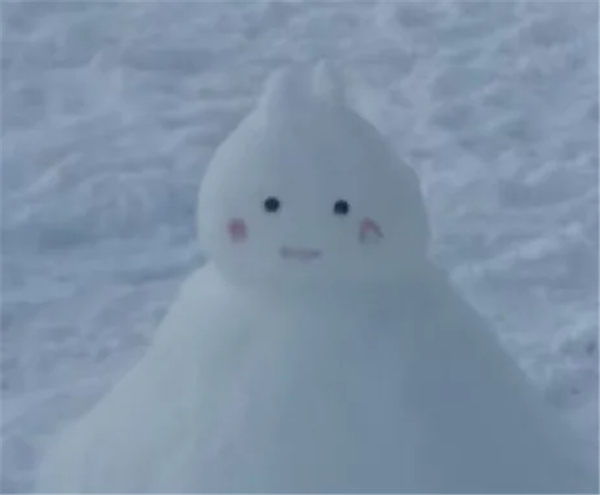又是一年清明到。在中国,无论什么节日,都有相应的美食。青团,就是清明时节的一款时令小吃,流行于江南地区。
qingtuan, orgreen rice balls, are widely consumed in china"sjiangnanarea —the region south of the yangtze river — on qingming, or tomb sweeping festival.
这一时令美味通常用糯米粉混合捣碎的艾草制成,据称有驱蚊虫防瘟疫之功效。青团里常包裹的馅料有红豆沙、黑芝麻、肉松等。
 (资料图)
(资料图)
the seasonaldelicaciesare usually made from glutinous rice powder mixedwith poundedmugwort orwormwood —an edible wild herb thought toprevent toxic insect bites.itis traditionally stuffed withred bean paste, black sesame paste, or dried meat floss.
或许是清明时节的濛濛细雨还带有一丝丝凉意,有网友想把青团加热食用。当打开微波炉时,网友却惊奇地发现,青团居然融化了……
图源:豆瓣小组“炸厨房组”
这并非个例,还有人用蒸锅蒸青团。在高温之下,青团可怜兮兮地吐出了五脏六腑。
图源:豆瓣小组“炸厨房组”
图源:豆瓣小组“炸厨房组”
在一众“炸厨房”能手晒出自己加热青团的照片后,终于有人出来说明了原因:清明前是寒食节,不能开火,所以青团是直接吃凉的。
图源:豆瓣
比起清明节(tomb sweeping festival),大多数人对寒食节(cold food festival)可能没有那么熟悉。寒食节在冬至后105天,在清明节前与清明相连。所谓“寒食”,就是禁止生火,不能烧煮,只能吃事先准备好的冷食。
tomb sweeping festivalis closely linked with the hanshi or cold food festival. the latter was another festival observed in ancient china. on this day, people were not allowed to light a fire to cook. instead, they could only eat food prepared a day earlier, hence the name, cold food.
寒食节,传说是在春秋时代为纪念晋国的忠义之臣介子推而设立。相传,晋国的公子重耳因躲避祸乱流亡他国,大臣介子推不离不弃,始终追随左右。后来,重耳励精图治,成为一代明君晋文公。但介子推生性淡泊名利,不求利禄,与母亲归隐绵山。
legend has it that chong"er, a prince of jin, endured many hardships while he moved around the warring states. once, when the prince was tormented by hunger, jie zitui, one of his supporters, offered him food.
later, when chong"er became the duke of jin, he ordered a search for jie who had gone into hiding in the remote mountains with his mother. the duke wanted jie to serve as one of his ministers.
jie, who preferred to be a hermit in the mianshan mountain in today"s jiexiu city of shanxi, had no political ambitions and refused the duke"s invitation.
晋文公求人心切,为了逼介子推出山相见便下令放火烧山,没想到介子推誓死也不下山,最终被烧死在山中。晋文公感念忠臣之志,将其厚葬,并将放火烧山的那天定为寒食节,规定民间禁止用火,寒食一天,以纪念介子推的忠诚。
chong"er ordered the mountain to be burned down to force jie out of hiding. unfortunately, jie did not give in and the fire ended up killing him and his mother.
filled with remorse, chong"er ordered that during the three days around this tragic anniversary the setting of fire be forbidden. this meant all food was eaten cold. therefore the festival is thus named.
有趣的是,寒食节是汉族传统节日中唯一以饮食习俗来命名的节日。
interestingly, the cold food festival is the only tradition chinese festival that is named after food customs.
从春秋时期至今,寒食节已有2600多年的历史。但伴随着时间流逝,寒食节已经慢慢融入了清明节。人们在这几天祭祖、踏青、放风筝等,一起来看看这些习俗如何用英语表达。
祭祖 worshiping ancestors
清明祭祖的传统可以追溯到古代,唐朝朝廷专门在此期间设定“节假日”以供子民祭祀先祖,该传统不断延续,在现代社会也有着举足轻重的影响。
tomb sweeping festival is a period in which chinese people honor nature and the ancestors of the chinese nation.
扫墓和献上供品对逝者表示敬意,是两种纪念逝去亲友的重要习俗。为表示对逝者的关怀,墓边的杂草被清除并盖上新鲜的土壤。逝者最喜欢的食物、酒和筷子连同纸钱一起被供奉在墓边。
cleaning the tombs and paying respect to the dead with offerings are the two important practices to remember late relatives. weeds around the tomb are cleared away and fresh soil is added to show care for the dead. the dead person"s favorite food, wine and chopsticks are offered on their tombs, along with paper money.
踏青 spring outing
清明时节除了祭祖,也是春游的好时光。有诗云:“梨花风起正清明,游人寻春半出城。”在温润的微风中,当循着草木的气息,外出寻找春天的足迹,强身健体又心情舒畅。
not only is it a period for commemorating the dead, it is also time for people to go out and enjoy nature.strolling outside in spring adds joy to life and promotes a healthy body and mind.
清明正值草木复苏、百花齐放,阳光普照、万物焕发生机之时,正是欣赏自然之美的大好时机。这一习俗可以追溯到春秋战国时期。
as trees turn green, flowers blossom, and the sun shines brightly, everything returns to life. it is a fine time to appreciate the beauty of nature. this custom can be traced back to the spring and autumn period (770 – 476bc) and warring states period (475 – 221bc).
放风筝 flying kites
放风筝是清明时节许多中国人喜爱的活动。在这一天放风筝的特别之处在于,人们会在风筝在空中的时候剪断风筝线,让它自由飞翔。据说这样做能带来好运,还能祛除晦气、赶走疾病。
flying kites is an activity favored by many chinese during tomb-sweeping day. what makes flying kites during this day special is that people cut the string while the kite is in the sky to let it fly free. it is said this brings good luck and that diseases can be chased away by doing this.
清明时节话《清明》。最后,让我们一起欣赏这首千古传颂的绝句的英文翻译吧。
《清明》
(唐)杜牧
清明时节雨纷纷,
路上行人欲断魂。
借问酒家何处有?
牧童遥指杏花村。
a drizzling rain falls like tears on the mourning day;
the mourner"s heart is going to break on his way.
where can a wineshop be found to drown his sad hours?
a cowherd points to a cot "mid apricot flowers.
来源:中国日报 21世纪英文报
栏目主编:秦红
文字编辑:宋彦霖
本文作者:中国日报
题图来源:图虫
图片编辑:徐佳敏
关键词:



